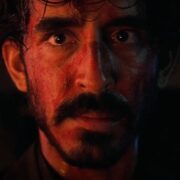MY LOVE, DON’T CROSS THAT RIVER: 76 Years Of Marriage
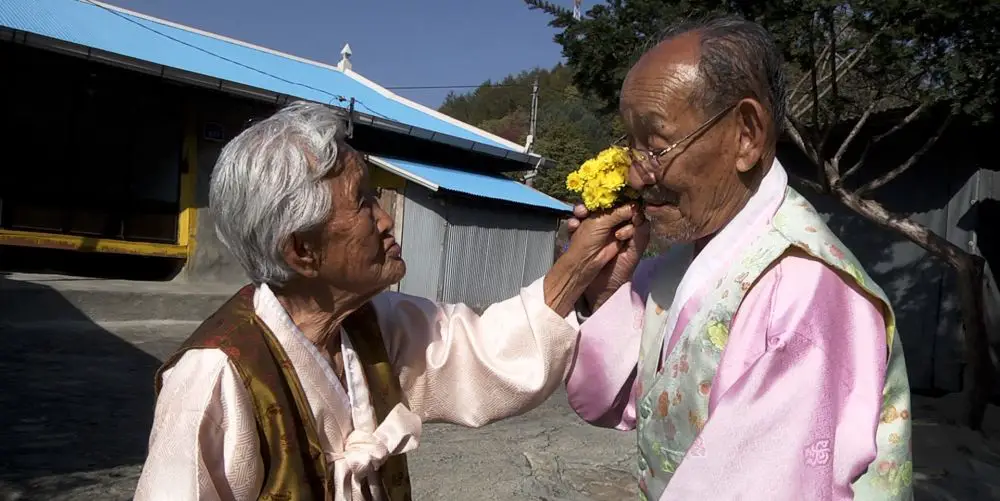
Jin Mo-young‘s debut documentary feature, My Love, Don’t Cross That River, is extremely touching, and from solely watching the trailer of this South-Korean film, you can see why.
Released for the festival circuit in 2014, Jin shows us a 98-year-old Jo Byeong-man and 89-year-old Kang Kye-yeol, who’d been married for 76 years. Jin filmed the elderly couple in their mountain village home in Hoengsong County, Gangwon Province for 15 months.
The married couple were first featured on-screen in a five-episode segment titled Gray-Haired Lovers on a KBS television documentary program that aired in 2011. After Jin Mo-young saw Jo and Kang on TV, he rushed to the couple’s mountain village and asked them if he could make their story into a possible film. After obtaining their permission in September 2012, Jin began following the couple and documenting their everyday life.
The Universality Of The ‘Golden Years’
My Love, Don’t Cross That River does not hold much of a plot other than following the couple’s lives, but that is all that is needed to become involved with their story. Their day-to-day activities, whilst seemingly banal and boring, are is portrayed as an endearing spectacle of love and connection between husband and wife.
They are simply doing their chores, nothing extraordinary, and then proceed to joke with each other, teasing and laughing. It is this sweetness within the presumably mundane which gives this film its attraction.
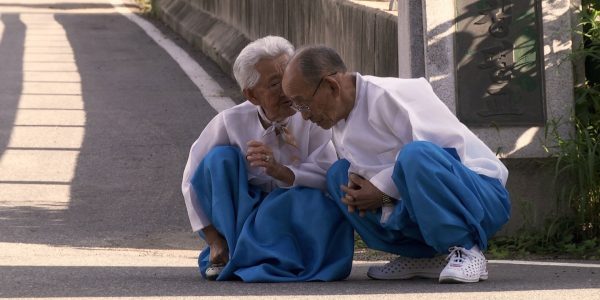
The film itself was a surprise hit at the box office, drawing 4.64 million admissions to become the highest grossing Korean independent documentary film of all time. When the director was asked about what he believed attributed to this success, he claimed “It appears that people from all age groups feel moved by the film. I think it’s because it makes people realize what enduring love is about.”
As we are shown an intimate insight into the waning years of this couple and their relationship, one cannot help but have a personal connection to their story. Whether you are young, aged, man, woman, parent or grandparent, everyone can relate to the themes portrayed in this film: death, birth, family and love.
The Beauty of South-Korea
Decorating the events that shape the couples’ lives is the astounding expanse of the South Korean countryside. Shot by Jin with an astute eye, the seasons are prominent throughout the movie, with the film starting literally amongst the fall of the leaves, which the husband and wife are shovelling, and then ending at the same time of year.
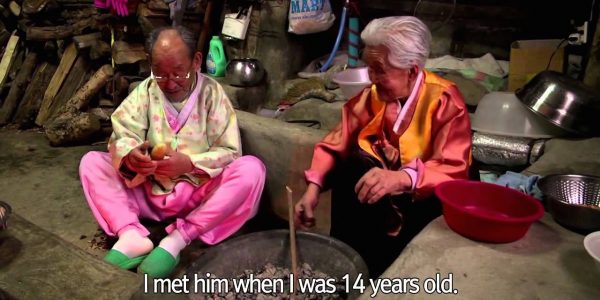
In this way, Jin not only conveys the universality of love but the beauty of the South-Korean landscape. He frequently cuts from a discussion between the couple to a wide shot of their house surrounded by crystal white snow or greenery and foliage. The beauty is only enhanced by the way the couple interact with their surroundings: playing with the leaves, wearing the flowers and even eating the snow.
It is a part of their lives as it is a part of their culture. The director even makes the point of filming them multiple times in their traditional dress, handboks, with matching colours. A way to show their connection to each other as well as to the traditions of their country.
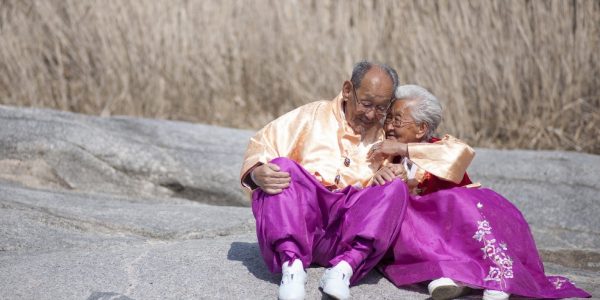
As the topic of death emerges more and more in the film, so does the theme of spirituality. The practise of preparing for death and, more importantly, for life after death, invades the final chapter of this film. Rather than presenting these practises to be overly superstitious they are instead portrayed as acts of endearment and a way to cope with loss, by attempting to forge a connection that transcends death.
Jin paces the movie by gradually letting the audience get to know the married couple and connect to the little idiosyncrasies that make up their relationship. Rarely is one in frame without the other alongside them. Therefore, when that relationship is put to the test in the second half of the film, it is all the more heart-wrenching.
Jin manages to surmise a lifetime of love and bonding over an hour, simply through the couple’s simple acts of affection. Whether you agree with the spiritualistic practises or not, a lot can be learned by their commitment to each other, particularly in an age where romance appears to be more and more of a fantasy.
Conclusion
Jin Mo-young demonstrates his mastery in capturing the moment and retaining the sense of realism, whilst presenting a beautiful array of shots. He positions himself amongst the banal and finds something sentimental and beautiful within it, whether it is through the focus on seasons, the clothes worn by the couple, or the positioning of the couple within the frame.
Certainly, he is a director t keep an eye out for, and My Love, Don’t Cross That River is a documentary you should watch. The life of this couple symbolises the depth of human emotion, the film encapsulates deep love and loss; it is a heartwarming tale.
Do you agree that this film expands the cinematic perceptions of the old?
My Love Don’t Cross That River opened in New York on Friday, June 17 and Los Angeles on Friday, June 24. A national release in the US is to follow.
Does content like this matter to you?
Become a Member and support film journalism. Unlock access to all of Film Inquiry`s great articles. Join a community of like-minded readers who are passionate about cinema - get access to our private members Network, give back to independent filmmakers, and more.












